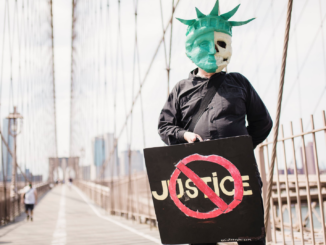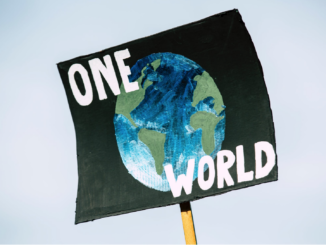By: Ashley Galloway
Oklahoma State University. Iowa State University. American University. George Washington University. Harvard.
These are just a few of the schools where protests have broken loose, responding to the Trump administration’s announcement Wednesday, September 5, 2017 regarding the Deferred Action for Childhood Arrivals program (DACA).
A couple weeks ago, the Trump administration ordered an end to DACA, a program created in 2012 by former president Barack Obama aiding individuals who were brought to America as infants or children. These adults, known as Dreamers, have little memory of the countries they were born in, but may be asked to return to them. The Trump administration announced the program will end in March 2018, exactly six months from the day the decision was announced.
The Dreamers make up hundreds of thousands of people in the U.S., meaning the protests and turmoil resulting from the Trump administration’s announcement are loud and rowdy.
Students in high schools across the nation walked out of their classrooms in protest in the weeks following. College students rallied together, protesting with signs to make their voices and concerns heard. Even professors stood up for their beliefs, risking their careers. Dozens of Harvard professors were arrested for civil disobedience. New Yorkers gathered around Trump Tower, angrily fighting the decision.
Obama posted a statement on Facebook in the midst of it all, saying:
“Ultimately, this is about basic decency. This is about whether we are a people who kick hopeful young strivers out of America, or whether we treat them the way we’d want our own kids to be treated. It’s about who we are as a people – and who we want to be.”
A week after the announcement, on September 14, President Donald Trump contradicted previous statements after landing in Florida to comfort victims of recent Hurricane Irma. While leaving the plane, he told reporters that the Dreamers wouldn’t be touched until after the wall was completely built, which would require more funding first.
He also tweeted:
“Does anybody really want to throw out good, educated and accomplished young people who have jobs, some serving in the military? Really! They have been in our country for many years through no fault of their own – brought in by parents at a young age. Plus BIG border security.”
While these statements temporarily satisfied many, others posted aggressive comments like “Yes, that’s why we voted for you!” and “Make deals for the American people, not illegal immigrants.”
Still, some are unconvinced, not trusting Trump’s words. Protests still break loose, advocating for Dreamers and their future in our country.
“How did your ancestors get here?” retorted one advocate on social media.
The controversial argument leaves many Dreamers afraid of the future, due to the uncertainty of the Trump administration’s statements. The final decision will affect schools everywhere, transforming diversity and attendance rates if the president confirms deportation as a priority.
Perhaps the wall will never be finished. Perhaps the funding won’t come during Trump’s next few years of presidency. Or, perhaps it will. Whatever the outcome, Dreamers and their advocates will be left on the edge of their seats, fearful of America’s future, until an official decision is made.
That decision will change America, and what it stands for, forever.



